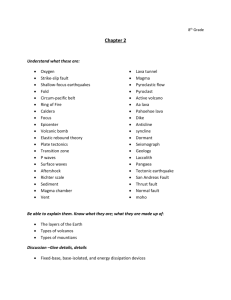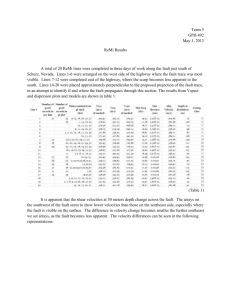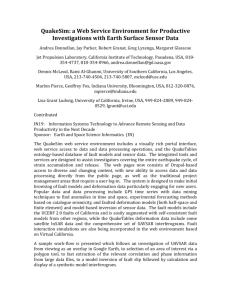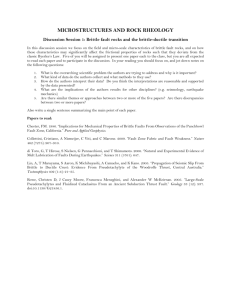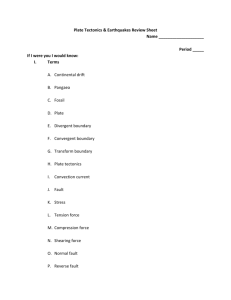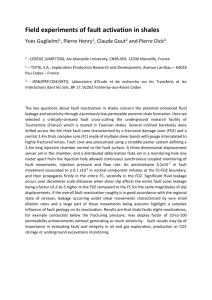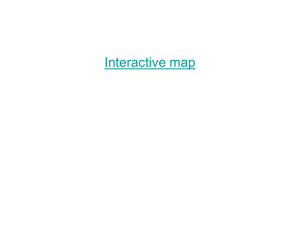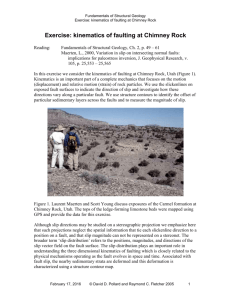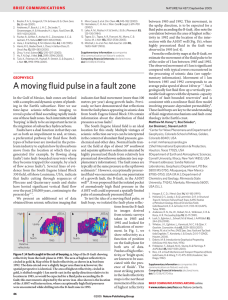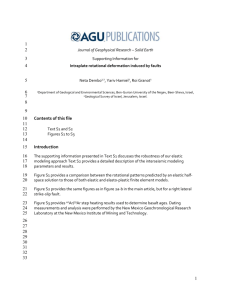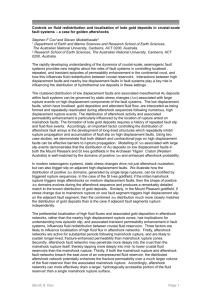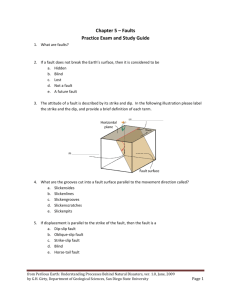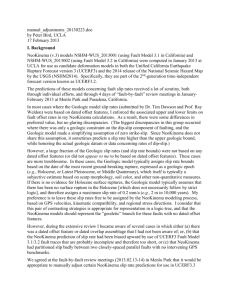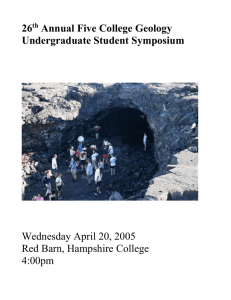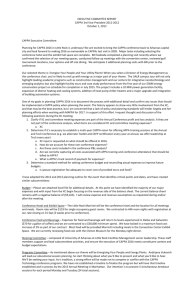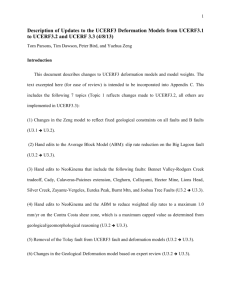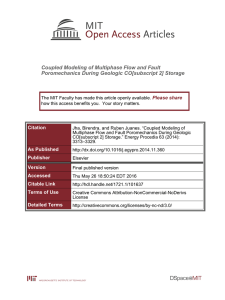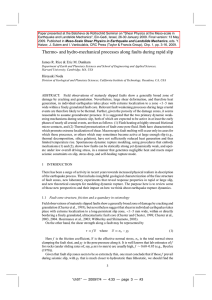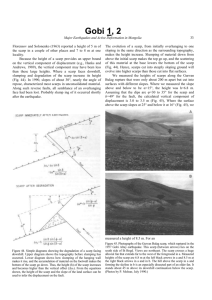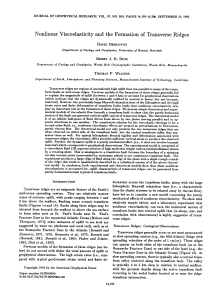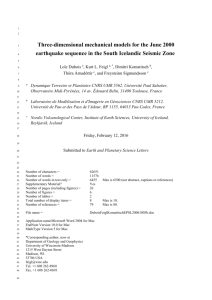Post-doctoral research proposal -- Numerical exploration of fluid
advertisement
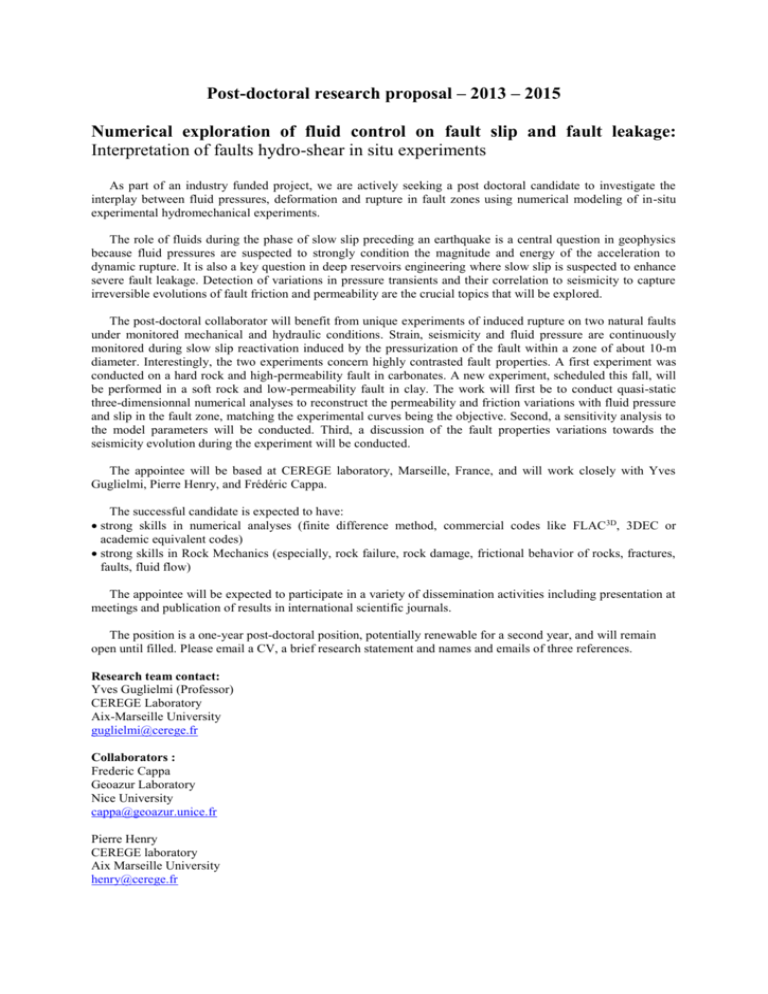
Post-doctoral research proposal – 2013 – 2015 Numerical exploration of fluid control on fault slip and fault leakage: Interpretation of faults hydro-shear in situ experiments As part of an industry funded project, we are actively seeking a post doctoral candidate to investigate the interplay between fluid pressures, deformation and rupture in fault zones using numerical modeling of in-situ experimental hydromechanical experiments. The role of fluids during the phase of slow slip preceding an earthquake is a central question in geophysics because fluid pressures are suspected to strongly condition the magnitude and energy of the acceleration to dynamic rupture. It is also a key question in deep reservoirs engineering where slow slip is suspected to enhance severe fault leakage. Detection of variations in pressure transients and their correlation to seismicity to capture irreversible evolutions of fault friction and permeability are the crucial topics that will be explored. The post-doctoral collaborator will benefit from unique experiments of induced rupture on two natural faults under monitored mechanical and hydraulic conditions. Strain, seismicity and fluid pressure are continuously monitored during slow slip reactivation induced by the pressurization of the fault within a zone of about 10-m diameter. Interestingly, the two experiments concern highly contrasted fault properties. A first experiment was conducted on a hard rock and high-permeability fault in carbonates. A new experiment, scheduled this fall, will be performed in a soft rock and low-permeability fault in clay. The work will first be to conduct quasi-static three-dimensionnal numerical analyses to reconstruct the permeability and friction variations with fluid pressure and slip in the fault zone, matching the experimental curves being the objective. Second, a sensitivity analysis to the model parameters will be conducted. Third, a discussion of the fault properties variations towards the seismicity evolution during the experiment will be conducted. The appointee will be based at CEREGE laboratory, Marseille, France, and will work closely with Yves Guglielmi, Pierre Henry, and Frédéric Cappa. The successful candidate is expected to have: strong skills in numerical analyses (finite difference method, commercial codes like FLAC 3D, 3DEC or academic equivalent codes) strong skills in Rock Mechanics (especially, rock failure, rock damage, frictional behavior of rocks, fractures, faults, fluid flow) The appointee will be expected to participate in a variety of dissemination activities including presentation at meetings and publication of results in international scientific journals. The position is a one-year post-doctoral position, potentially renewable for a second year, and will remain open until filled. Please email a CV, a brief research statement and names and emails of three references. Research team contact: Yves Guglielmi (Professor) CEREGE Laboratory Aix-Marseille University guglielmi@cerege.fr Collaborators : Frederic Cappa Geoazur Laboratory Nice University cappa@geoazur.unice.fr Pierre Henry CEREGE laboratory Aix Marseille University henry@cerege.fr
